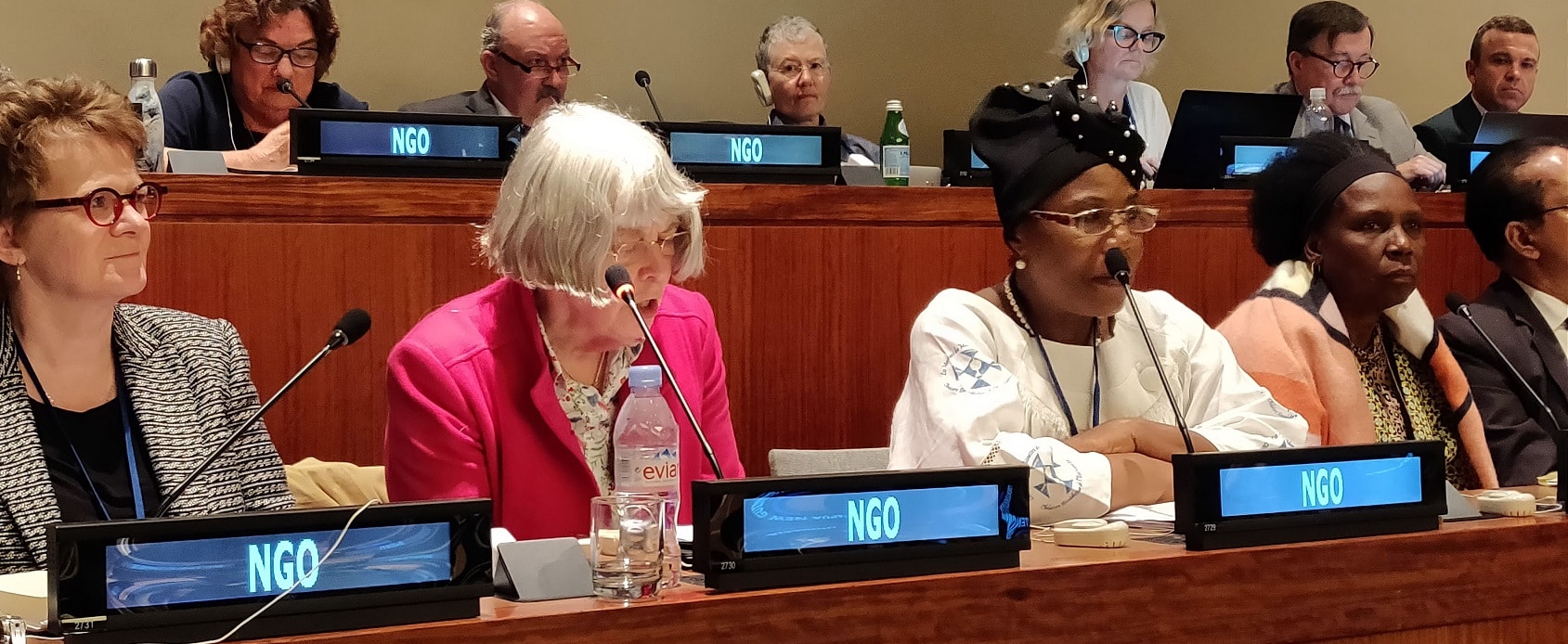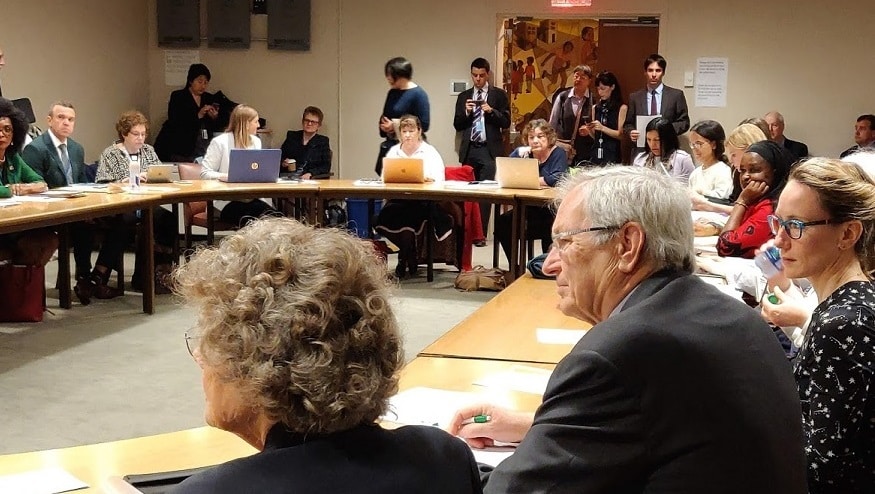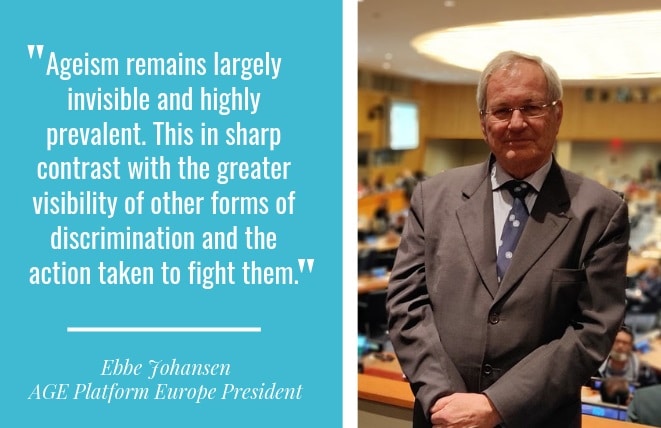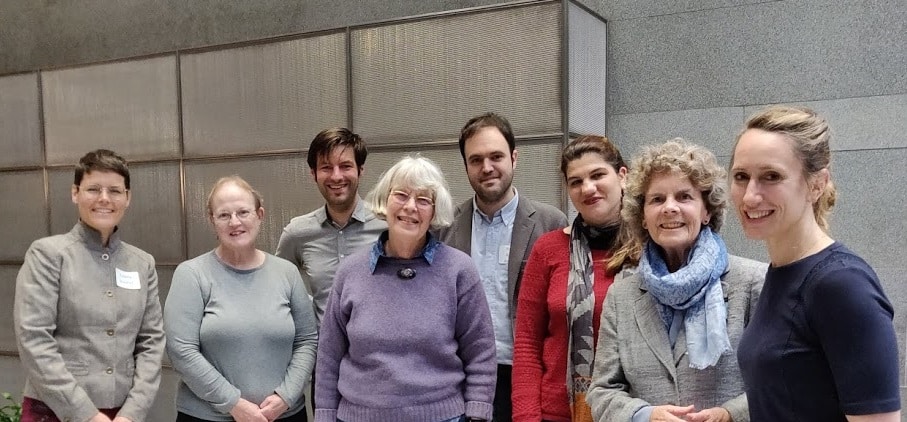
Borja Arrue from AGE speaking at OEWG 2019
“Older people cannot wait any longer!”
Hope and frustration, progress and stalemate: something is moving, but stronger political commitment is now urgent. These are some of the mixed feelings shared by participants to a recent United Nations meeting on ageing. AGE reports.
From 15 to 18 April 2019, member states, human rights institutions, United Nations (UN) agencies and civil society gathered in New York to attend the 10th session of the United Nations Open-Ended Working Group on ageing (OEWGA). This year’s session focused on social protection and education and how older people can experience obstacles in accessing those rights because of their age. The session also dug deeper into the topics of long-term care and palliative care, as well as autonomy and independence, from a legal perspective.
Quo vadis, Europe?
European countries were very unequally proactive. At the session it became visible that the 28 remain divided: some were explicitly supportive of moving forward, while others remained cautious… and a majority of absentees was not even attending the discussions.
Europe gathers among the wealthiest countries of the United Nations and has the biggest share of older people in the world. Quite logically, participants in this Working Group on Ageing expect European countries to be among the frontrunners of older people’s rights. Despite some signs of openness shown by the EU, such expectations have not yet been, met.
The role of civil society: echoing the lived experiences of older people

AGE delegation at the OEWGA, headed by our President Ebbe Johansen, took part in all plenary sessions and meetings with other NGOs.

In parallel of the plenaries, AGE got active in side events and meetings to stress the impacts that ageism has on the ability of older people to live as equals. One side event jointly organised with the European Union, HelpAge International, Equinet and the World Health Organization (WHO) highlighted the importance of building a new narrative about ageing, free of stereotyping, to advance our work around the enjoyment of human rights in old age.

As time permitted, AGE’s delegation also participated in events organised by other civil society organisations bringing the voice of older people from all across the world to the United Nations. A key insight was that despite very different economic, legal and social situations, the issues faced by older people are often of similar nature, and a rights-based approach would help to better address these.

And now what?
Sustained advocacy efforts in between sessions are key to ensuring meaningful state involvement at this UN Working Group. Taking inspiration from the proactive role played by many AGE members in their own countries, we will focus in the months to come on the ways in which other older persons organisations can influence the positions of their governments as well.
The next session will focus on access to justice and on access to the labour market. Our efforts for a truly successful 11th session, in which more older peoples’ organisations will be involved and Europe will at last be fully engaged, start now!

Our statements:
- Introductory
- Education, training, lifelong learning and capacity building
- Social protection and social security
- Normative elements of autonomy and independence, and long-term and palliative care
Our written submissions:
- Education, training, lifelong learning and capacity building
- Social protection and social security
- Normative elements of autonomy and independence
- Normative elements of long-term and palliative care
Useful links
- Webpage of the 10th session of the OEWGA
- Official report from the Chair of the Open-Ended Working Group on Ageing
- Human rights in older age: AGE responds to United Nations consultation
Watch our daily summaries of the OEWGA discussions:
- Video summaries of Day 1 | Day 2 | Day 3 | Day 4
- Video summary of What Is Next with Mrs. Amal Abou Rafeh






